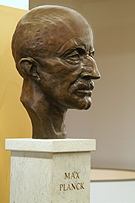
Speaker:
Stefan Hollands
Coordinator:
Jörg Lehnert
Address:
Inselstraße 22
04103 Leipzig
Germany
Contact:![]() +49(0)341-9959-641
+49(0)341-9959-641![]() +49(0)341-9959-658
+49(0)341-9959-658![]() IMPRS
IMPRS

Theoretical Physics (TP)
Scientific Members working in this area
- Daniela Cadamuro (Institute for Theoretical Physics of Leipzig University)
- Marc Casals (Institute for Theoretical Physics of Leipzig University)
- Dejan Gajic (Institute for Theoretical Physics of Leipzig University)
- Stefan Hollands (Institute for Theoretical Physics of Leipzig University)
- Klaus Kroy (Institute for Theoretical Physics of Leipzig University)
- Daniel Roggenkamp (MPI for Mathematics in the Sciences)
- Bernd Rosenow (Institute for Theoretical Physics of Leipzig University)
- Inti Sodemann (Institute for Theoretical Physics of Leipzig University)
- Rainer Verch (Institute for Theoretical Physics of Leipzig University)
- Jürgen Vollmer (Institute for Theoretical Physics of Leipzig University)
- Jochen Zahn (Institute for Theoretical Physics of Leipzig University)
Current PhD Students
| Surname, first name | Phone | Office | Homepage | |
| Iuliano, Claudio | Claudio.Iuliano | 7169 | E2 02 | |
| Worschech, Roman | Roman.Worschech | 666 | ---- |
Description of Research
General relativity.
Einstein's theory of general relativity is a crossroad between physics and mathematics. Gravitational waves, detected in 2015, have become a major trigger for the development of the theory: There is a strong drive both in Theoretical, Numerical, and Mathematical General Relativity to understand the behavior of black holes excited by small but possibly nonlinear perturbations with the ultimate aim to determine what precise variant of the theory is realized in nature.
Quantum information.
The synthesis of concepts from information- and quantum theory -- especially quantum many-body systems -- is driving technological innovations in quantum computing- and data transmission on the way from fiction to reality. On the conceptual side, ideas related to entanglement, quantum error correction- and key distribution are revolutionizing previously unrelated areas, such as statistical mechanics or relativistic quantum field theory, in a major way.
Operator algebras provide the natural habitat for many notions of quantum field- and information theory. Entropic quantities in operator algebras often satisfy inequalities that have a classical counterpart in analysis. Inclusions of von Neumann algebras encode fusion categories with a strong link to models with excitations obeying braid-group statistics.
Many body systems.
Systems with a large number of constituents pervade statistical physics and probability theory. We study novel topological phases of matter without traditional order parameters offering a class of conceptually promising systems realizing features of quantum devices or the intriguing relation between black holes, quantum field theory, and information theory which is increasingly seen as a paradigm for quantum gravity. There are strong links to systems with topological excitations exhibiting braid-group statistics, such as topological defects describable in mathematical terms using modular tensor- and higher categories, which in turn are intimately tied to operator algebras.
Soft matter.
We study soft mesoscopics, i.e., emerging properties in soft, biological, and active matter. So-called active many-body systems break the usual symmetries (e.g., energy conservation and action-reaction balance) on a particle scale, thereby giving rise to unconventional macroscopic material properties that may defy or spontaneously restore "known" mathematical constraints. For example, plants are programmed to grow into incompatible manifolds that cannot be embedded into Euclidean space without internal stresses, suspensions of micro-swimmers power classically forbidden Brownian ratchets and super-efficient heat engines, or non-reciprocal interactions admit unexpected types of mesoscopic self-organization.
Alumni
| Name | Advisor | Graduation | Topic |
| Zhirayr Avetisyan | Rainer Verch | 2013 | Mode decomposition and Fourier analysis of physical fields in homogeneous cosmology (see more) |
| Markus Borris | Rainer Verch | 2011 | Quantum field theory on non-commutative spacetimes (see more) |
| Benjamin Eltzner | Rainer Verch | 2013 | Local thermal equilibrium on curved spacetimes and linear cosmological perturbation theory (see more) |
| Giovanni Frigeri | Bernd Rosenow | 2021 | Interaction effects in quantum interferometers (see more) |
| Daniel Geiß | Klaus Kroy | 2023 | Effects of time delay in motile active matter : from microscopic to collective behavior (see more) |
| Thomas Ludwig | Rainer Verch | 2013 | Wick rotation for quantum field theories on degenerate moyal space (see more) |
| Jan Schlemmer | Rainer Verch | 2010 | Local thermal equilibrium on cosmological spacetimes (see PDF) |
| Stefano Steffenoni | Klaus Kroy | 2019 | Active Brownian dynamics (see more) |
| Mojtaba Taslimitehrani | Stefan Hollands | 2018 | Aspects of gauge theories in Lorentzian curved space-times (see more) |
| Björn Zocher | Bernd Rosenow | 2013 | Signatures of majorana fermions and ground state degeneracies in topological superconductors (see more) |
| Jan Zschoche | Rainer Verch | 2013 | Quantum pressure inequalities and the Chaplygin gas equation of state |



